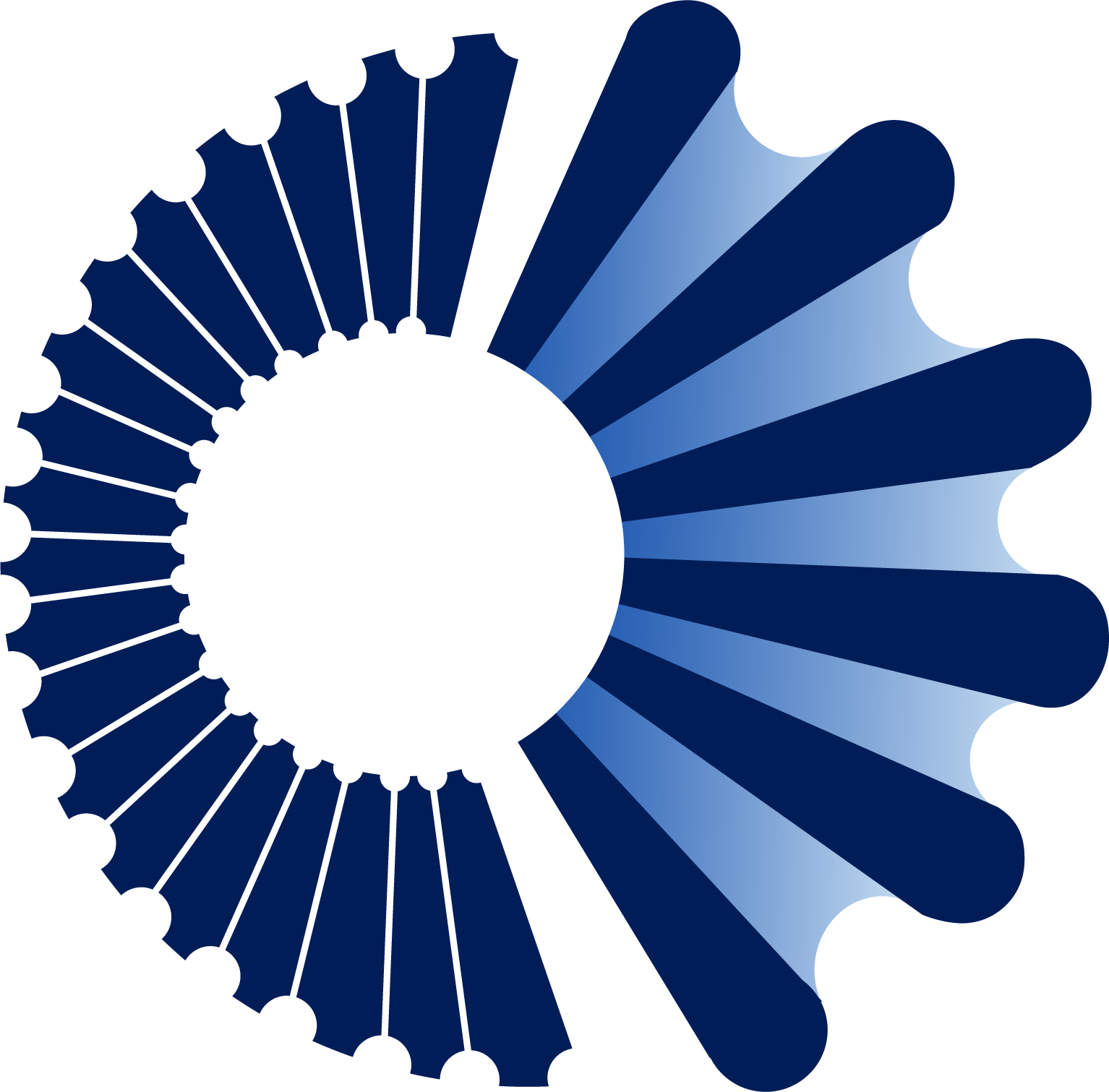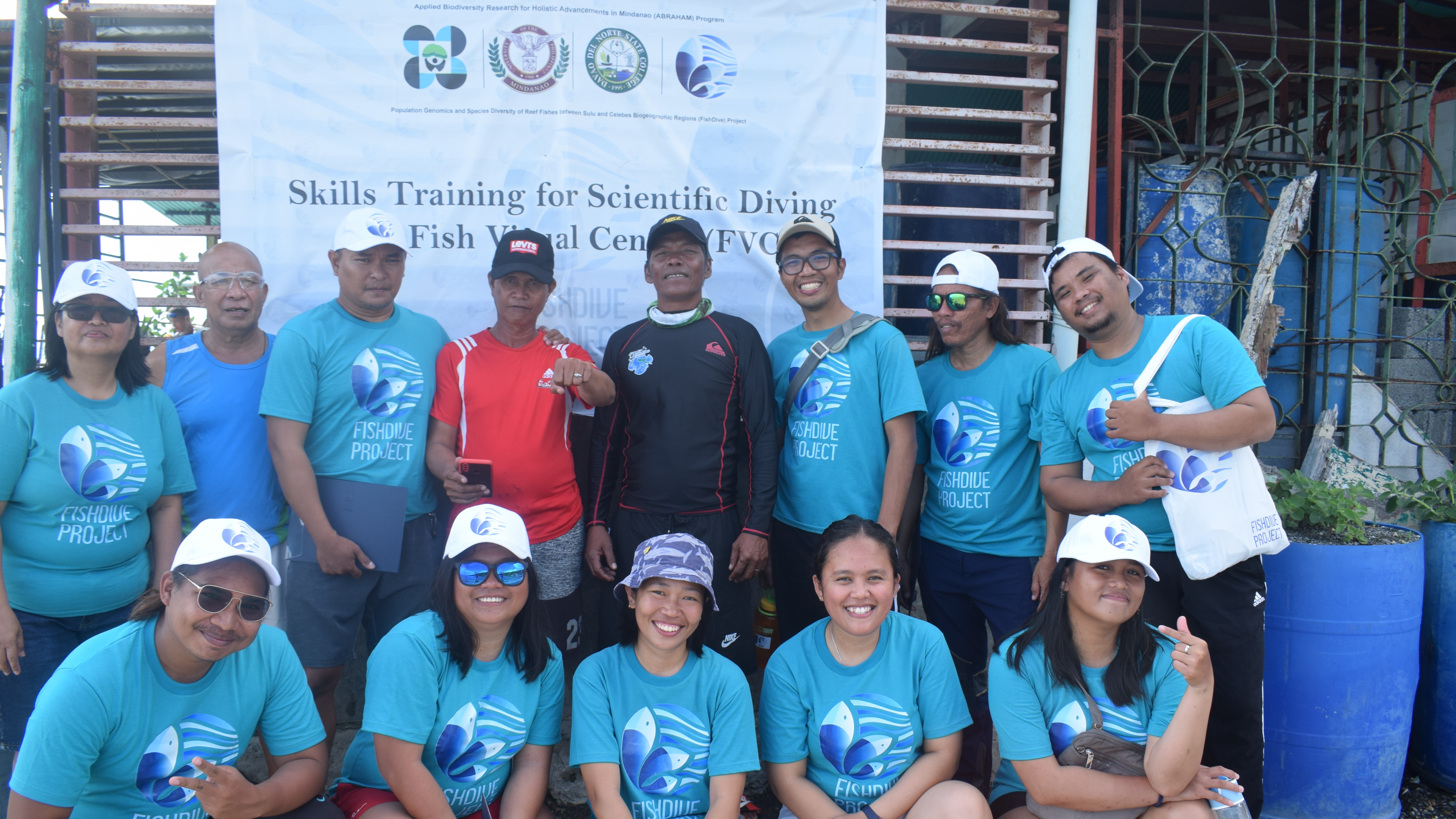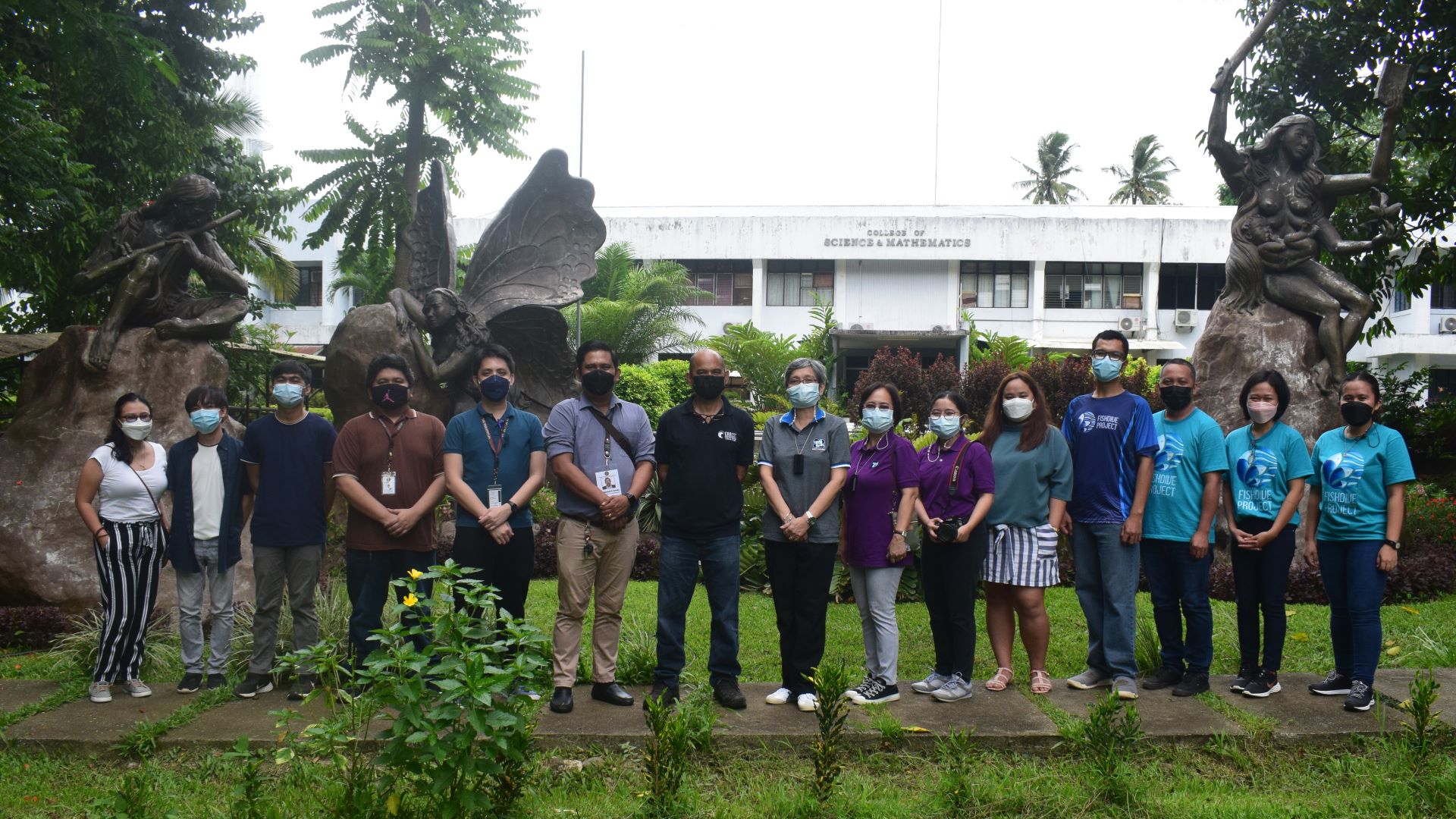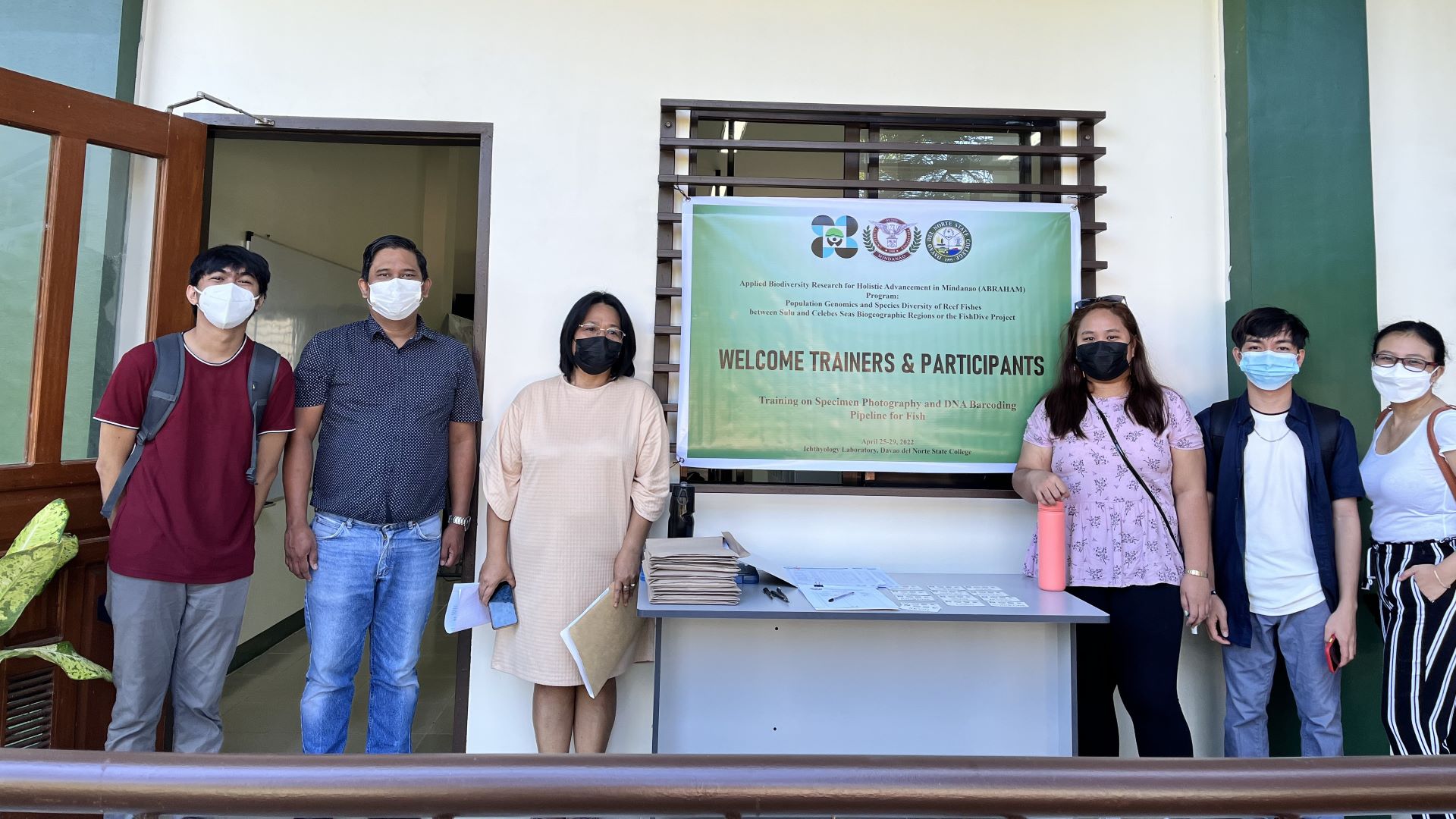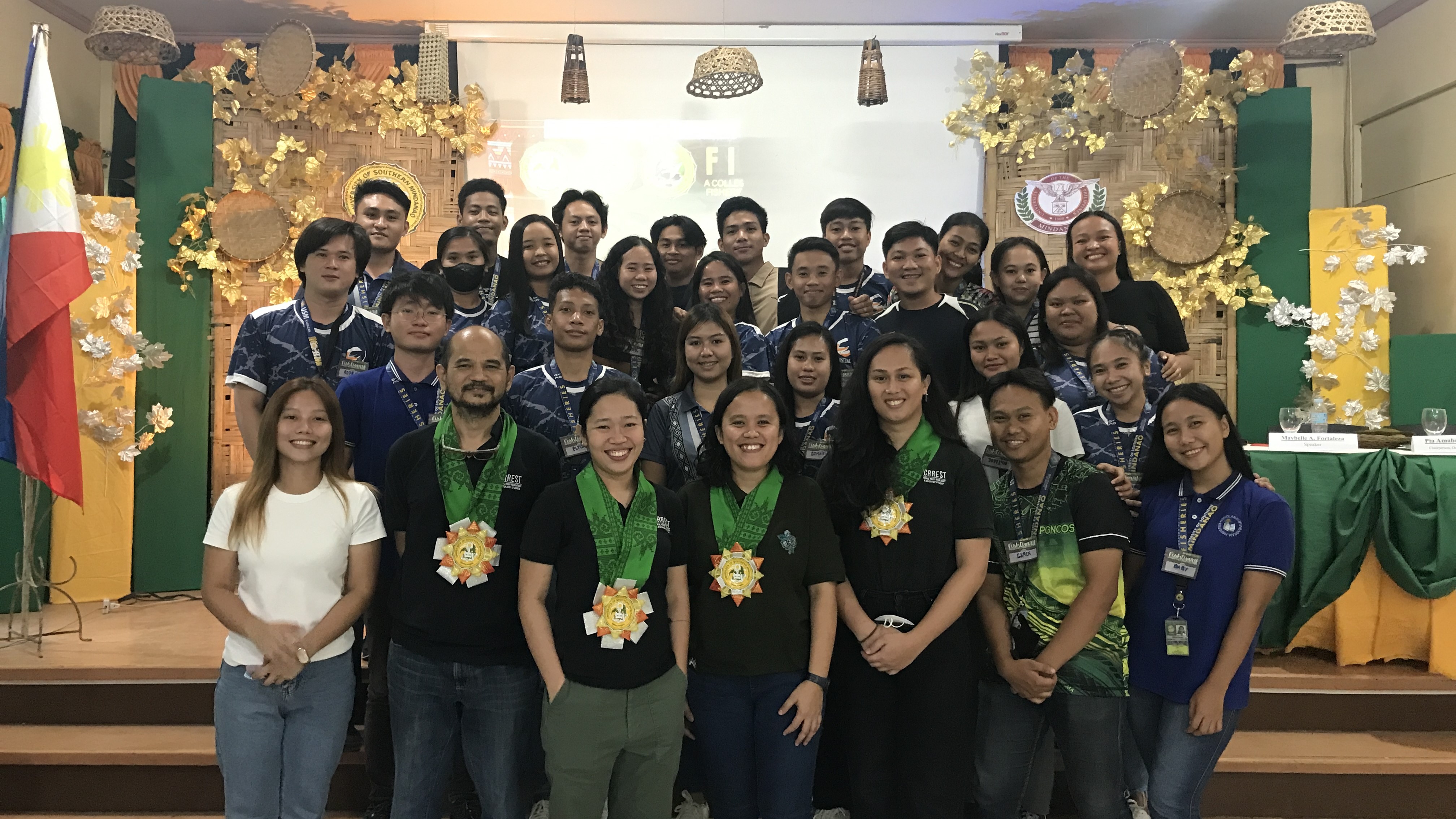
Photo taken by Kristille Diane Espinosa and Lordelie Robles
FishDive Project Invited as Resource Persons in Monthly Fish Talk Organized by USM Kabacan
Written by FishDive Project
Uploaded on April 28, 2023
KABACAN, NORTH COTABATO - Dr. Cleto L. Nañola, Jr. and Ms. Maybelle A. Fortaleza of CRREST Laboratory served as the resource persons for the monthly seminar series organized by the University of Southern Mindanao Fisheries Society last 28 April 2023. Dr. Nañola discussed the importance of marine protected areas (MPAs) in the country as means of managing our coastal and marine resources, while Ms. Fortaleza presented what is currently known about the marine fish diversity in Davao Gulf. Both presentations include data from the research projects conducted by CRREST Laboratory in Mindanao, particularly in Davao Gulf. The seminar was attended by 150 BS Fisheries students and faculty members.
We are grateful to the College of Agriculture Dean Dr. Julius Jerome Ele, Dr. Mary Joy Cañolas, Ma’am Leonila Papalid, and Sir Stephen Dave Dupo for the warm welcome and fruitful discussion in USM Kabacan. Both universities will also enter a Memorandum of Understanding focused on training and capacity building activities for the BS Fisheries faculty and students through the DOST-funded ABRAHAM: FishDive Project.
